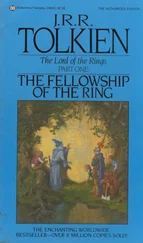Helge Fauskanger - J.R.R. Tolkien’s Lord’s prayer and Hail Mary in Quenya - Syntactical and Etymological Analysis
Здесь есть возможность читать онлайн «Helge Fauskanger - J.R.R. Tolkien’s Lord’s prayer and Hail Mary in Quenya - Syntactical and Etymological Analysis» весь текст электронной книги совершенно бесплатно (целиком полную версию без сокращений). В некоторых случаях можно слушать аудио, скачать через торрент в формате fb2 и присутствует краткое содержание. Жанр: Языкознание, на английском языке. Описание произведения, (предисловие) а так же отзывы посетителей доступны на портале библиотеки ЛибКат.
- Название:J.R.R. Tolkien’s Lord’s prayer and Hail Mary in Quenya: Syntactical and Etymological Analysis
- Автор:
- Жанр:
- Год:неизвестен
- ISBN:нет данных
- Рейтинг книги:5 / 5. Голосов: 1
-
Избранное:Добавить в избранное
- Отзывы:
-
Ваша оценка:
- 100
- 1
- 2
- 3
- 4
- 5
J.R.R. Tolkien’s Lord’s prayer and Hail Mary in Quenya: Syntactical and Etymological Analysis: краткое содержание, описание и аннотация
Предлагаем к чтению аннотацию, описание, краткое содержание или предисловие (зависит от того, что написал сам автор книги «J.R.R. Tolkien’s Lord’s prayer and Hail Mary in Quenya: Syntactical and Etymological Analysis»). Если вы не нашли необходимую информацию о книге — напишите в комментариях, мы постараемся отыскать её.
J.R.R. Tolkien’s Lord’s prayer and Hail Mary in Quenya: Syntactical and Etymological Analysis — читать онлайн бесплатно полную книгу (весь текст) целиком
Ниже представлен текст книги, разбитый по страницам. Система сохранения места последней прочитанной страницы, позволяет с удобством читать онлайн бесплатно книгу «J.R.R. Tolkien’s Lord’s prayer and Hail Mary in Quenya: Syntactical and Etymological Analysis», без необходимости каждый раз заново искать на чём Вы остановились. Поставьте закладку, и сможете в любой момент перейти на страницу, на которой закончили чтение.
Интервал:
Закладка:
aranielya, noun with pronominal ending: thy kingdom . Regarding the ending - lya thy , see esselya. # Aranie kingdom is a hitherto unknown word, but obviously related to aran king . The latter is undoubtedly to be referred to the stem ara- noble (PM:363, cf. the entry ar(a) - in the Silmarillion Appendix); arancould reflect an "extended" form *aran. Alternatively, arancould simply represent a primitive form derived from ara- by adding a masculine ending, like * arano. (A quite different etymology for the words for king was set out in the Etymologies , where aranis the Noldorin form only, corresponding to Quenya haran: See LR:360. However, aranlater became the word for king in Quenya and Noldorin/Sindarin alike.) The word # aranie kingdom includes what is normally an abstract ending. The ending - ie(- ië) can be gerundial or infinitival (see UT:317, commenting on en-yalië), or it can correspond to English abstract endings like - ness , e.g. verie boldness (LR:352 s.v. ber-). If I had been presented with the word # araniewith no context or gloss, my best guess would probably have been that it means * kingship . When it is used for kingdom it may properly refer to the abstract reign of a king rather than to his realm as a physical place. However, precisely what is meant by Biblical references to "the Kingdom of God" is a matter for theologians rather than linguists. In the original Greek texts (Matthew 6:10, Luke 11:2), the word translated "kingdom" appears as basileia; this is also properly an abstract, and Tolkien may simply have carried its etymology over into Quenya (Greek basileus: basileia king : kingdom = Quenya aran: # aranie). In their Greek-English Lexicon of the New Testament , Arndt and Gingrich define basileiaas " 1. kingship , royal power , royal rule , kingdom … 2. kingdom , i.e., the territory ruled over by a king… 3. esp. the royal reign or kingdom of God, a chiefly eschatological concept." When coining the word # araniefor Quenya, Tolkien may have intended it to cover about the same shades of meaning. As for the meaning "the territory ruled over by a king", it is interesting to notice that the normally abstract ending - iealso appears in # nórie country (compounded and inflected in Namárië: sindanóriello out of a grey country ). The stem is obviously ndor- as in the more usual word nóre land (LR:376, cf. WJ:413).
as, preposition with . As we argued in the entry arabove, it seems that Tolkien eventually decided that ar and is to be derived from a stem *as rather than ar as in earlier sources; the Sindarin cognates a, ahsuggest this. The conjunction and and the preposition with could descend from the same stem; the semantic gap between them is not too wide for this to be plausible. All that remains to be explained is why the sof *as becomes rin ar and , but stays sin as with . The development s> z> ris a well-known phenomenon in Quenya, but Tolkien seems to have entertained various ideas about what precise environment triggers this development. In the Etymologies , snormally becomes ( z>) rif it follows a vowel and there is no unvoiced consonant following it. Hence we have primitive besnô husband > Q verno(LR:352 s.v. bes-), and the stem ólos- produces Q olor dream (LR:379). In this scenario, Quenya ar and could come from primitive * as, while Q as with would have to represent a form where the swas originally followed by another, unvoiced consonant so that it could not be voiced to z(later > r). Probably this consonant would simply be another s; double ssis common and cannot become voiced (e.g. primitive bessê> Q vesse, LR:352 s.v. bes-; a form ** vezze> ** verredid not arise even though the group ssimmediately followed a vowel). As with could then represent earlier * assa(or conceivably * asseor * asso), later shortened to as. Compare nisse woman having the shorter form nis, LR:375 s.v. ndis-: Quenya does not permit double consonants finally, so when the final vowel is omitted, sshad to be simplified to s. – However, Tolkien later decided that for sto be voiced to z(in turn becoming r), it is not enough that it follows a vowel; it has to be intervocalic , a second vowel following after it as well (presumably a voiced consonant following would also do the trick, so that we would still see primitive besnô> Q vernorather than ** vesno). Above we quoted olor dream from the stem ólos as evidence for the change s> r. A later source (UT:396) similarly quotes the stem as olo-s, but now the Quenya word for dream is given as oloswith the final sunchanged, and only in the plural does the change s> z> roccur: The plural form is cited as olozi/ olori. Here the original swas intervocalic because of the plural ending - ithat followed it. According to this new system (final - sbeing unchanged) it would be possible to derive as with directly from primitive * as. Now it is rather ar and that is the mysterious word; since the change to rhas occurred, the original smust here have been intervocalic at an earlier stage. Perhaps we are to assume that ar< * azis shortened from * aza< * asa? If so, the Quenya preposition ara outside , beside could be re-explained as the same word with the final vowel intact (this vowel persisting when the word was used as a preposition, but disappearing when it was used as a conjunction and shortened).
Átaremma, noun with pronominal ending: our Father . Concerning the ending - mma our (here following a connecting vowel - e- to avoid an impossible consonant cluster) see separate entry. The word for father would here seem to be # átar; sources both earlier and later than this text have atarwith a short initial vowel instead (QL:33, LR:349 s.v. ata-, WJ:402). Conceivably the vocative particle a(concerning which see aiaabove) is included here: * a Ataremma o Father of us being contracted to Átaremma. But if so, the integrated particle cannot be obligatory: The word atarinya"my father" in LR:70 is another vocative (Herendil talking to his father Elendil), even with a pronominal ending as in Átaremma, but this seemingly completely parallel example still does not show # átar- with a long vowel. Of course, this is a human son talking to a human father; it could be that # Átarwith a lengthened vowel is rather a special strengthened form used when the title Father is applied to God. If so it may parallel Héru Lord in the Hail Mary-text; this word elsewhere appears as heruwith a short e. – The word atar father , as it appears elsewhere, is in the Etymologies derived from a stem ata- that is likewise defined father (LR:349). The primitive form (one of the few ancestral forms that are explicitly identified as "PQ", Primitive Quendian) is also said to be atar, which Tolkien at this stage probably thought of as representing simply an extended form of the stem ata itself (*ata-r). This, according to Etym, produced Quenya atarpl. atari. Yet the plural # atárioccurs as part of the compound Atanatári Fathers of Men which is attested several places, such as WJ:39 (also genitive plural Atanatárionin WJ:175). Tolkien repeatedly changed his mind about the precise shape of this word; the variants Atanatardiand Atanatarniare also found (WJ:174, 166/174). If atar father was to have the stem # atár- this would require a primitive form * atâr(-) with or without some short final vowel (cf. Anar sun being derived from primitive anâr, LR:348 s.v. anár-, and therefore having the plural form # anári– attested as part of a compound in PM:126 – instead of ** anari). The stem-forms # atard- and # atarn- that Tolkien experimented with elsewhere (the first of which is hinted at already in the Qenya Lexicon, QL:33) would likewise require primitive forms including the "extra" consonant, probably * atardoand * atarno, respectively. Compare Quenya halatir kingsfisher becoming halatirn- before endings because the word descends from Primitive Quendian khalatirno(LR:394 s.v. tir-). Yet in the text before us, Tolkien wrote neither * Atáremma, * Atardemma, nor * Atarnemmawhen translating our Father , so this version of the Lord’s Prayer cannot be contemporaneous with any of these other experiments. Átaremmaitself may rather represent yet another experiment with the precise form and behavior of the Quenya word for father .
Читать дальшеИнтервал:
Закладка:
Похожие книги на «J.R.R. Tolkien’s Lord’s prayer and Hail Mary in Quenya: Syntactical and Etymological Analysis»
Представляем Вашему вниманию похожие книги на «J.R.R. Tolkien’s Lord’s prayer and Hail Mary in Quenya: Syntactical and Etymological Analysis» списком для выбора. Мы отобрали схожую по названию и смыслу литературу в надежде предоставить читателям больше вариантов отыскать новые, интересные, ещё непрочитанные произведения.
Обсуждение, отзывы о книге «J.R.R. Tolkien’s Lord’s prayer and Hail Mary in Quenya: Syntactical and Etymological Analysis» и просто собственные мнения читателей. Оставьте ваши комментарии, напишите, что Вы думаете о произведении, его смысле или главных героях. Укажите что конкретно понравилось, а что нет, и почему Вы так считаете.












